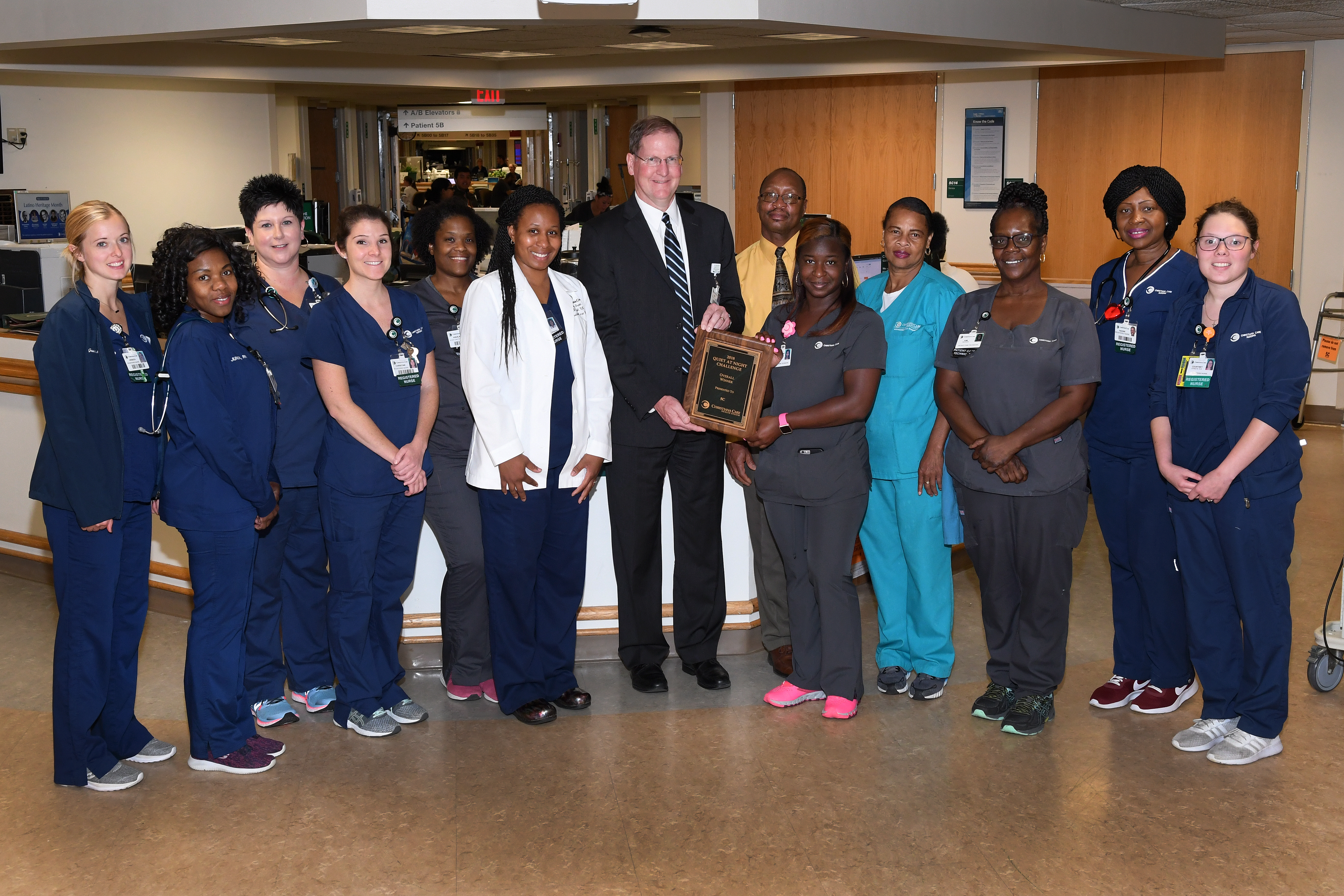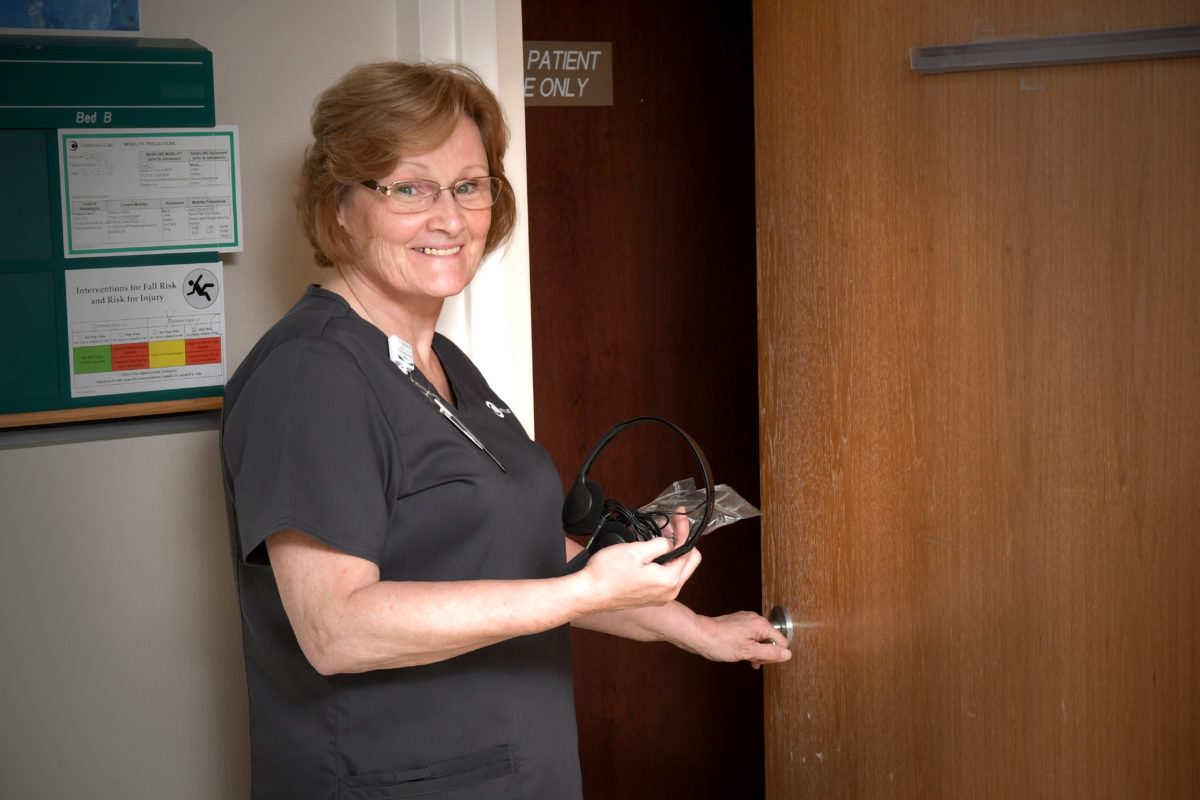It’s almost 9 p.m. on 5B, a medical unit at Christiana Hospital, and Mary Roth, the unit clerk, is handing out headphones to patients.
“If they want to watch TV, they use the headphones so the noise doesn’t disturb other patients,” Roth said.
For eight years, Christiana Care caregivers have worked together on Quiet At Night, a systemwide initiative to reduce noise between 9 p.m. and 6 a.m. Roth serves on the multidisciplinary committee that meets each month to assess its success and discuss new ways to improve the experience for patients and their families.
The committee is not keeping silent in recognizing the efforts of colleagues who are reducing noise on the floors. The long-running Quiet at Night Challenge creates incentives for patient care units and essential services that demonstrate success in reducing nighttime noise in the hospitals. In the most recent Quiet at Night Challenge, patient care teams earned bonus points for cleanliness. The nine patient care units that improved by at least 5 points received dinner and a plaque to thank them for their great work.
The units with the highest overall quiet scores, as measured by patient responses to surveys, were also recognized. The essential service team that showed the greatest improvement was Phlebotomy, with a 12 percent improvement.
Progress is steady. With each challenge, patient satisfaction scores on noise levels have improved, said Mike Puchtler, vice president, Patient Experience.
“We want to be exceptional today and even better tomorrow,” Puchtler said. “Our ability to provide a peaceful, restful environment for our patients is critical for them to heal. It requires a relentless focus on our part.”
Using feedback from patient surveys and members of the Patient Advisory Committee, the team has established best practices that include dimming lights and shutting doors. An announcement that quiet time is beginning is played over the overhead paging system in English and Spanish, in addition to announcements in the patient rooms and on TV.
On the floor, nurses and other staff members wear ID badge holders that say: “A quiet place is a healing place.”
“Instead of asking someone to lower their voice, you just point to your badge,” Puchtler said.
Each month, alternating between Christiana and Wilmington hospitals, committee members do rounds at 9 p.m. and then debrief.

‘We are always looking for ways to improve,” said Bob Mulrooney, senior vice president, Facilities and Services. “Making rounds at night makes us more aware of sounds that might not be as apparent on a busy floor during the day.”
Throughout the system, noise-reduction solutions have been put into place: Adjusting pneumatic tubes to eliminate noise. Replacing noisy casters on carts with smooth-gliding wheels. Adding soft-close lids to linen carts. Modifying medication carts so supplies don’t rattle. Ensuring doors close softly.
Staff who have a concern or a suggestion on ways to promote quiet can submit a Quiet At Night Improvement Request electronically. Everyone has a voice.
“We serve together in driving a positive experience for our patients and families,” Puchtler said. “It’s a collaborative effort across the board, an embodiment of our values of excellence and love.”
Roth said the initiative is a reminder that everyone who works in the health system plays a role in the patient experience.
“If I can make a difference in even a small way, I am happy to help,” she said.



